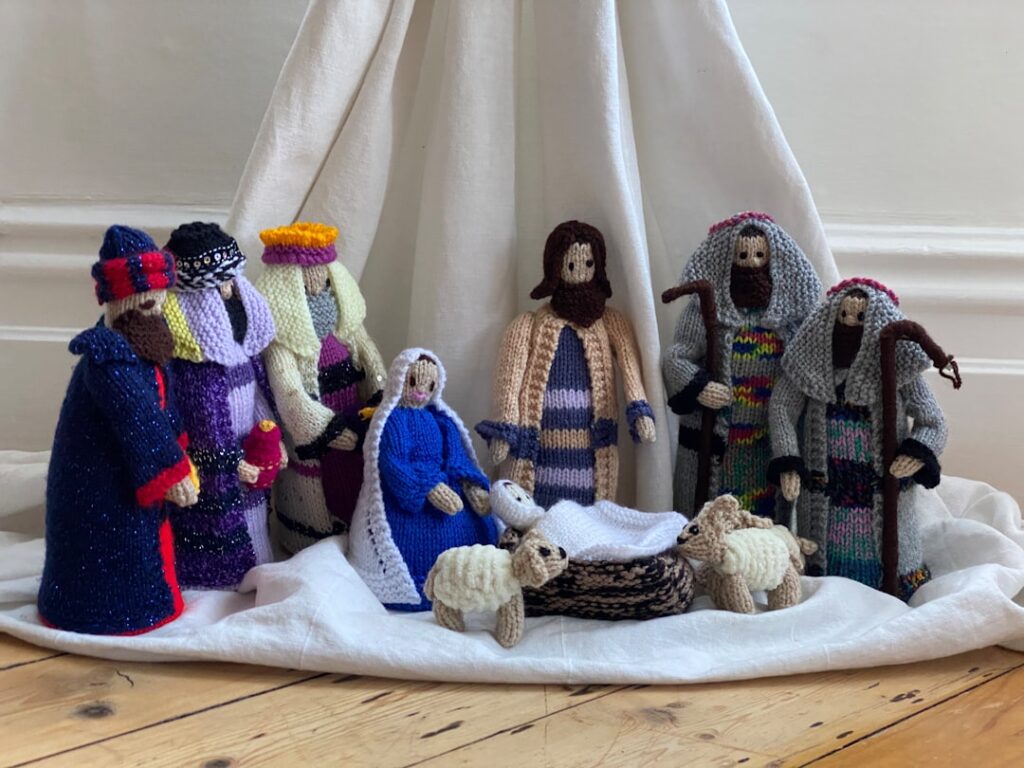 What’s your favourite dream? I often dream that I can fly, and my favourite dream involves being able to climb to the top of a tall building, then simply walk off and pull up just before touching the ground. Sometimes, I have to check that I’m actually dreaming before leaping!
What’s your favourite dream? I often dream that I can fly, and my favourite dream involves being able to climb to the top of a tall building, then simply walk off and pull up just before touching the ground. Sometimes, I have to check that I’m actually dreaming before leaping!
We all dream normally, but occasionally, God reveals Himself to us in our dreams. Sometimes, what God is communicating is clear and obvious; other times, we need to pray and seek counsel to make sense of it. We all dream, but we don’t always remember our dreams. I’m one of those people who have multiple dreams and can easily recall them upon waking.
I thought it might be useful for some of my readers to take a brief look at dreams, particularly in regard to the Christian walk, prophets, and prophecy. God’s people are a formidable community of dreamers!
An obvious starting point is Joel 2, where God’s promise of dreams, visions, and prophecy marks a pivotal moment in understanding how He communicates in these last days. Peter quotes it at Pentecost in Acts 2 to explain the turning-point outpouring of the Holy Spirit:
“And it shall come to pass afterward, that I will pour out my Spirit on all flesh; your sons and your daughters shall prophesy, your old men shall dream dreams, and your young men shall see visions. Even on the male and female servants in those days I will pour out my Spirit.” (Joel 2:28–29, ESV)
For the charismatic community today, these verses are significant. They underscore that we’re now living in a time when God’s Spirit is moving widely, and every believer—young or old, male or female—can hear and share God’s heart. God is at work, speaking through prophecy, dreams, and visions—and basically, if you can breathe, you’re included! However, with this emphasis on hearing from God through various means, important questions arise as we consider the vast topic of dreams: Why are dreams not always treated with the same seriousness as prophecies? How should we discern and weigh them—do we need to? How trustworthy are they as a form of divine communication?
The Biblical Weight of Dreams
Dreams have always been part of God’s method or ‘toolkit’ for communication, stretching back through both the Old and New Testaments. We see them guiding and influencing figures like Joseph in Genesis—whose dreams impacted and shaped Israel’s future—or Daniel, who interpreted royal dreams in Babylon that revealed God’s plans, including the fate of fellow prisoners. Even in the New Testament, God warns and leads Joseph (Jesus’ earthly father) through dreams, protecting the Messiah and fulfilling prophecy.
These are not just random events; they are moments where God directly intervenes to steer His people. Yet, dreams are rarely straightforward. They are often symbolic, requiring careful interpretation and scrutiny, which is where discernment becomes crucial. The fact that dreams are embedded in Joel’s prophecy alongside prophecy and visions indicates they carry weight, especially in these “last days.” Because of their symbolic nature, dreams tend to be side-lined or not given the same level of scrutiny as more direct prophetic words.
Why Aren’t Dreams Weighed Like Prophecies?
In many charismatic settings, prophecy is weighed carefully—often before leadership teams or within trusted circles. There is a useful process involved: Does it align with Scripture? Does it resonate with the Spirit’s leading? Does it confirm what God is already speaking? However, dreams often do not receive the same treatment because they are typically packed with imagery and metaphor. Interpreting them is therefore tricky and requires discernment, not guesswork. This is important because we want the dream to reflect what God wants to communicate, rather than interpreting it through our own biases or interests. Compared to a straightforward prophetic word, dreams can seem murky and harder to pin down, but they are worth the prayer and diligence needed to make sense of them.
Many dreams feel more personal—God addressing the dreamer’s life or heart. They do not always carry a clear message for the wider church, so they are often kept private, shared only within small groups or trusted friendships. Despite this, they remain valuable and encouraging.
Prophecies are often clear or come with a sense of urgency or precision and can be responded to immediately. In contrast, dreams can be vague, easier to dismiss as “just a dream,” or get lost in the struggle of decoding symbols and emotions. I once had a dream in which I was driving a Jaguar XJ6 at 15 mph when I was stopped by a policeman and booked for going too slow. In the non-dream world (reality), I was in a time of discouragement, holding back in my involvement with ministry; this dream was an encouragement to ‘put my foot down’ again—to accelerate, or in modern parlance, to “pull my socks up and get with it!”
Some churches hold a high view of direct, spoken prophetic words (rhema), and dreams can seem less authoritative by comparison. This can lead to dreams being undervalued or overlooked. But should dreams be weighed less seriously? Scripture says no. Joel’s prophecy puts dreams on the same level as prophecy and visions, suggesting they are an integral and important part of how God communicates in our day. The big challenge is learning how to weigh and interpret them properly.
Weighing and Discerning Dreams
So, how do we weigh dreams? What’s the process? Although dreams are more complex than direct prophecies, we should approach them with the same seriousness.
We have to start somewhere. The first, most obvious, and important test is whether the content, theme, and general message of a dream align with Scripture. God doesn’t contradict Himself. If a dream leads you in a direction contrary to biblical teaching, it’s not from Him (see Galatians 1:8).
There’s a need for spiritual discernment—what the Bible calls the “inner witness” of the Spirit. Sometimes, even before you fully understand the dream, there’s a sense of peace, conviction, or a holy resonance indicating that the dream is from God. Perhaps that is why it’s generally older believers who receive dreams—visions are easier to grasp, whereas dreams require maturity in our walk with God and in our understanding of Scripture.
Just as prophecies are weighed in community (1 Corinthians 14:29), dreams can and should be brought into trusted circles for interpretation and confirmation before being shared publicly or acted upon. Leaders and mature believers can provide valuable perspective and help test the dream’s meaning, as well as determine what should, must, or can be done in response.
God often confirms His messages through various means—Scripture, prophetic words, or other believers. If a dream is genuinely from God, it won’t stand alone; He’ll back it up or confirm it in other ways. Not all dreams make sense immediately. Some require patience as their meaning unfolds over time, much like Joseph’s dreams in Genesis, which took years to come to fruition.
How Much Can Dreams Be Trusted?
Dreams aren’t automatically trustworthy, which is why discernment is crucial. However, they are a way in which God may choose to speak to us. The Bible clearly shows that not every dream is from God. Jeremiah warns of false dreams used to mislead (Jeremiah 23:25–32), and Ecclesiastes notes that dreams can simply be the result of daily worries (Ecclesiastes 5:3), akin to what some have cynically termed “pizza dreams.” Even in charismatic circles, where we eagerly expect God to speak, it’s important to remain realistic—some dreams are just the by-product of our busy minds, deception, or even our brains clearing away the “soot of life.”
Yet, when God does speak through dreams, they carry significant weight. The challenge lies in discerning when a dream is from God and when it’s not. This is why the process of testing and weighing dreams is so vital. While dreams may be more ambiguous than a clear prophetic word, they can still reveal astonishingly profound truths or guidance when correctly interpreted. For instance, I once had a dream about a church leader watching a boat with concern for the sailor aboard. In the dream (which was lengthy and I cannot fully recall here), God was showing that He had grace for the sailor and was going to help. Remarkably, it turned out that the leader (whom I had never met before) had a daughter named Sailor, and there were matters (that I mentioned to him) which God intended to assist with. So, don’t be quick to dismiss your dream as merely a “pizza dream.”
Are Dreams an Easier Way for God to Communicate?
Not really. God is an excellent communicator and in Sovereignty has all the power to get His message across at will. That said, dreams are accessible to everyone—just find a cosy place, close your eyes, count to 9,764, and maybe it will happen! Simply go to sleep and see what unfolds. They aren’t limited by intellectual ability, spiritual maturity, or even faith. Pharaoh in Genesis 41 and Nebuchadnezzar in Daniel 2 weren’t believers, yet God used dreams to communicate with them. This broad accessibility highlights how inclusive God’s communication can be—you can always pray and ask God to speak to you in this way. Sleep is an ideal way for God to speak to you 365 days a year!
The good thing about dreams is that they also bypass our conscious defences. Sometimes God speaks to us in dreams because, when we’re awake, we’re too distracted or even resistant to hear Him—the barriers are down. While our minds rest, God can cut through the noise of life, engaging us in a way we’re more open to. However, just because dreams are accessible doesn’t mean they’re always clear. They often require interpretation, which adds a layer of complexity compared to more straightforward forms of prophecy. Start writing your dreams down as soon as you wake, and you’ll gradually begin to recall them more vividly.
Communicating with you
In conclusion, dreams are repeatedly highlighted in Scripture because they have always been a key part of how God communicates. They appear at significant turning points in redemptive history, guiding people, revealing God’s plans, and even warning of danger. The fact that Joel’s prophecy specifically mentions dreams is not merely an afterthought; it is a declaration that in this new era of the Spirit, God will use every available means to communicate with His people. God created Adam and Eve with the innate capacity to dream, and for it to be a means by which He could reveal Himself to them.
The fulfilment of Joel 2 at Pentecost marked a profound shift in how we understand prophetic ministry. The Old Testament model confined prophecy to a select few individuals, but post-Pentecost, the Spirit is poured out on all believers, making every Christian a potential participant in prophetic activity. Significantly for us, dreams are part of that broader prophetic expression, alongside visions and spoken prophecies.
Remember, it is not only the spiritual elite who receive God’s messages—there are no ‘elite’; it is everyone—men and women, young and old, even those considered least significant in society. This levelling of the prophetic playing field is central to what it means to be a Spirit-filled community today. Dreams are included in the wider scope of revelation, reminding us that God’s voice is as varied as the people He speaks through.
So, one final question—did Jesus dream?






